In recent years, there has been a growing trend towards natural cosmetics, with consumers increasingly seeking out skincare products made with natural, plant-based ingredients. One ingredient that has seen a surge in popularity is vegetable oil. Once thought of as greasy and pore-clogging, vegetable oils are now being recognized for their many benefits in skincare, from providing hydration and nourishment to reducing inflammation and promoting anti-aging effects. In this article, we will explore the various ways in which vegetable oils are being used in natural cosmetics, as well as the benefits and challenges associated with their use. We’ll also provide case studies of successful natural cosmetics brands that have incorporated vegetable oils into their products, and examine the opportunities for further growth in this emerging market.
The benefits of vegetable oils in natural cosmetics
The different types of vegetable oils commonly used and their unique properties
When it comes to natural cosmetics, vegetable oils are a versatile and effective ingredient. There are many different types of vegetable oils commonly used in skincare products, each with its own unique properties and benefits.
- One popular vegetable oil is jojoba oil, which is extracted from the seeds of the jojoba plant. Jojoba oil is known for its moisturizing and anti-inflammatory properties, and it’s often used in skincare products for its ability to regulate sebum production and balance the skin’s natural oils.
- Another widely used vegetable oil is argan oil, which is derived from the nuts of the argan tree. Argan oil is rich in antioxidants and vitamin E, making it a powerful ingredient for anti-aging and skin repair. It’s also known for its ability to hydrate and soften the skin, making it a popular choice for body lotions and facial serums.
- Rosehip oil is another vegetable oil that’s gained popularity in recent years. Made from the fruit of the rose plant, rosehip oil is rich in vitamins A and C, as well as essential fatty acids. It’s often used in skincare products to reduce the appearance of scars and fine lines, and to brighten and even out the skin tone.
- Coconut oil is known for its moisturizing properties and is often used in hair care products to help tame frizz and nourish dry hair. It is also commonly used in skincare products due to its antimicrobial properties, which can help reduce acne-causing bacteria and soothe inflamed skin.
- Olive oil is rich in antioxidants and is often used in skincare products to help protect the skin from environmental damage. It is also a natural emollient, meaning it helps to soften and moisturize the skin, making it a popular ingredient in moisturizers and serums.
- Avocado oil is a rich source of fatty acids, which make it an excellent moisturizer for both the skin and hair. It is also high in antioxidants, making it a great ingredient for anti-aging products. Additionally, avocado oil has been shown to help soothe inflammation and can be helpful for those with sensitive or irritated skin.
- Sweet almond oil is rich in vitamin E and fatty acids, making it a great moisturizer for the skin. It is also a natural emollient and can help soothe dry, irritated skin. Additionally, sweet almond oil has been shown to have anti-inflammatory properties, making it a great ingredient for those with sensitive skin or conditions like eczema.
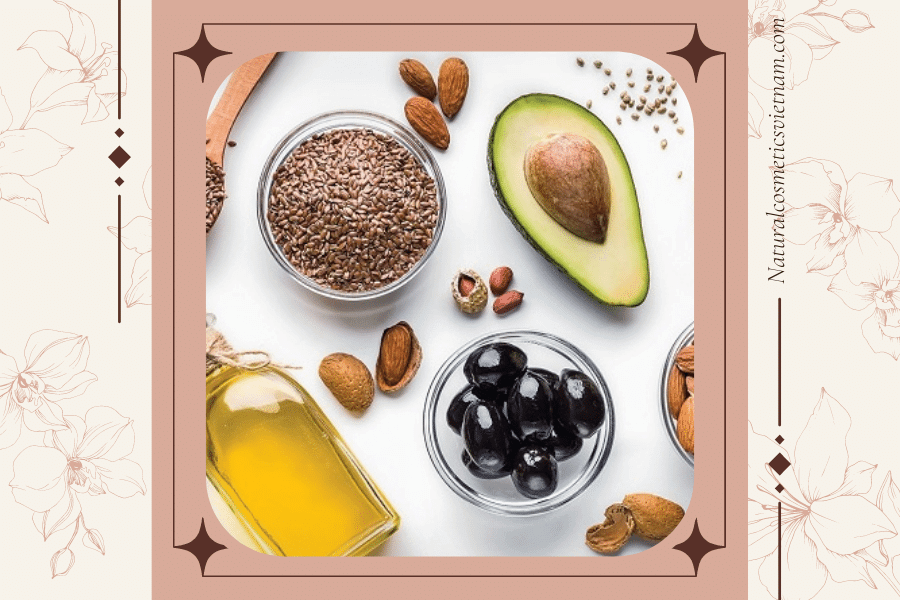
The different types of vegetable oils commonly used and their unique properties
Each of these oils has unique properties that make them beneficial for different skincare and haircare needs. When looking for natural products, it can be helpful to look for those that contain these oils as key ingredients. The use of vegetable oils in natural cosmetics provides a wide range of benefits for the skin, from hydration and nourishment to anti-aging and repair. By incorporating these oils into their products, natural cosmetics brands are able to provide consumers with effective, plant-based skincare solutions.
The benefits of using vegetable oils in natural cosmetics
The various benefits of using vegetable oils in natural cosmetics, including their moisturizing, anti-inflammatory, and anti-aging effects, and provide examples of brands that are successfully incorporating these oils into their products.
Moisturizing Effects
One of the primary benefits of using vegetable oils in natural cosmetics is their ability to deeply moisturize and nourish the skin. Unlike synthetic ingredients, vegetable oils are naturally rich in fatty acids and other nutrients that are easily absorbed by the skin, helping to restore and maintain its natural moisture balance. For example, argan oil is a popular ingredient in natural cosmetics due to its high content of oleic and linoleic acids, which help to soften and hydrate the skin. Similarly, jojoba oil is a lightweight, non-greasy oil that is easily absorbed by the skin, making it an excellent choice for facial serums and moisturizers.
Anti-Inflammatory Effects
Another benefit of using vegetable oils in natural cosmetics is their anti-inflammatory properties. Many vegetable oils contain compounds that help to soothe and calm the skin, making them ideal for use in products that are designed to reduce redness and irritation. For instance, chamomile oil is known for its anti-inflammatory and anti-allergenic effects, and is often used in natural cosmetics to calm and soothe sensitive skin. Similarly, calendula oil is a popular ingredient in natural cosmetics due to its ability to promote healing and reduce inflammation in the skin.
Anti-Aging Effects
Finally, vegetable oils are also prized for their anti-aging effects. Many oils are rich in antioxidants and other compounds that help to protect the skin from environmental damage and promote cell regeneration, leading to a smoother, more youthful-looking complexion. For example, rosehip oil is a popular ingredient in natural cosmetics due to its high content of vitamin A and vitamin C, both of which are known to stimulate collagen production and reduce the appearance of fine lines and wrinkles. Similarly, pomegranate seed oil is a potent antioxidant that helps to protect the skin from free radicals and promote cell renewal.

The benefits of using vegetable oils in natural cosmetics
Successful Brands Using Vegetable Oils in Natural Cosmetics
There are many natural cosmetics brands that have successfully incorporated vegetable oils into their products, and are reaping the benefits of doing so. For instance, Herbivore Botanicals is a popular brand that uses a range of vegetable oils, such as jojoba oil, argan oil, and rosehip oil, in their skincare products. Their Blue Tansy Resurfacing Clarity Mask contains a blend of plant-based oils that help to hydrate and soothe the skin, while also providing gentle exfoliation. Another brand that uses vegetable oils in their products is Tata Harper, whose Rejuvenating Serum contains a blend of oils, including avocado oil and rosehip oil, that help to nourish and hydrate the skin, while also promoting cell regeneration.
Vegetable oils are proving to be a valuable ingredient in the world of natural cosmetics. With their moisturizing, anti-inflammatory, and anti-aging effects, they offer a wide range of benefits for the skin, while also providing a gentle and natural alternative to synthetic ingredients. By incorporating vegetable oils into their products, natural cosmetics brands are able to offer consumers effective, plant-based skincare solutions that are both gentle on the skin and environmentally friendly.
The market for natural cosmetics and vegetable oils
How the market for natural cosmetics is growing globally?
The market for natural cosmetics and vegetable oils is growing at an unprecedented rate and it’s not difficult to see why. Consumers are increasingly aware of the potential dangers associated with synthetic ingredients and the benefits of using natural alternatives. As a result, the demand for natural cosmetics is skyrocketing, and with it, the demand for vegetable oils as key ingredients.
Globally, the natural cosmetics market is expected to reach a value of over $54 billion by 2027, up from $34 billion in 2020, according to a report by Grand View Research. This growth is fueled by a number of factors, including an increasing preference for eco-friendly and sustainable products, rising disposable incomes, and a growing awareness of the potential harm caused by chemical-laden products.
In particular, the use of vegetable oils in natural cosmetics is becoming increasingly popular. These oils offer a range of benefits for the skin and hair, from moisturizing and nourishing properties to anti-inflammatory and anti-aging effects. They are also rich in vitamins, minerals, and antioxidants, which can help to protect and repair the skin. Moreover, the use of vegetable oils in natural cosmetics is in line with the growing trend of clean beauty, which focuses on using natural, non-toxic, and sustainable ingredients. As consumers become more conscious of the impact their purchasing decisions have on the environment, they are increasingly seeking out products that are both effective and eco-friendly.
The market for natural cosmetics and vegetable oils is set to continue its rapid growth in the coming years, as consumers around the world become more aware of the benefits of using natural, sustainable ingredients in their beauty routines. For businesses looking to capitalize on this trend, there are significant opportunities to develop and market high-quality natural cosmetics that meet the growing demand for clean, eco-friendly beauty products.
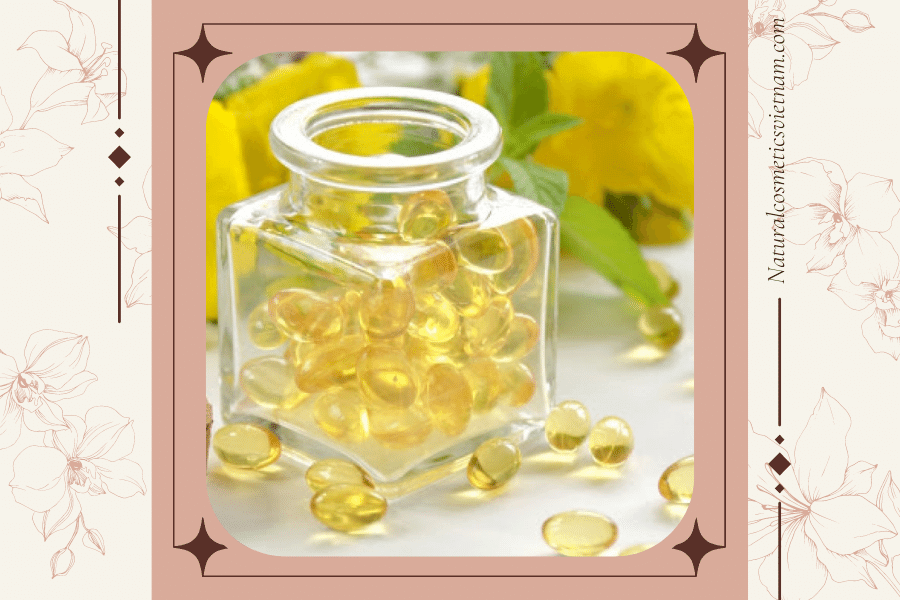
The market for natural cosmetics and vegetable oils is set to continue its rapid growth in the coming years
The growing demand for vegetable oils in natural cosmetics
The demand for vegetable oils in natural cosmetics is on the rise. Vegetable oils offer a range of benefits for the skin and hair, making them a popular choice for formulators looking to create high-quality, effective natural cosmetics.
One of the key reasons for the growing demand for vegetable oils is their moisturizing properties. Many vegetable oils are rich in essential fatty acids, which help to hydrate and nourish the skin. This makes them a great choice for use in moisturizers, body oils, and other skincare products.
In addition to their moisturizing properties, vegetable oils also offer a range of other benefits for the skin. For example, some oils, such as jojoba oil and argan oil, have anti-inflammatory properties that can help to soothe irritated or inflamed skin. Others, such as rosehip oil and carrot seed oil, are rich in antioxidants that can help to protect the skin from environmental stressors and signs of aging. Another reason for the growing demand for vegetable oils is the trend towards clean beauty. Consumers are becoming increasingly aware of the potential risks associated with synthetic ingredients and are seeking out natural, non-toxic alternatives. Vegetable oils are seen as a safe and sustainable choice, and many consumers are willing to pay a premium for products that contain these ingredients.
Overall, the demand for vegetable oils in natural cosmetics is set to continue its upward trajectory in the coming years. As consumers become more aware of the benefits of natural, sustainable ingredients, and as the trend towards clean beauty continues to grow, the use of vegetable oils in natural cosmetics is likely to become even more widespread. For businesses looking to capitalize on this trend, there are significant opportunities to develop and market high-quality natural cosmetics that feature vegetable oils as key ingredients.
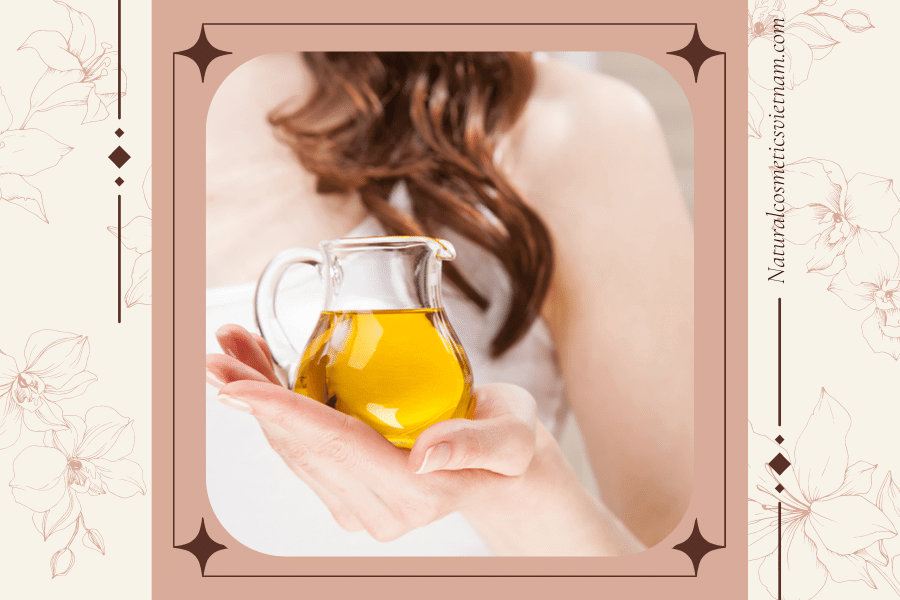
The growing demand for vegetable oils in natural cosmetics
How this trend is likely to continue in the future?
The trend towards using vegetable oils in natural cosmetics is expected to continue in the future, driven by several factors.
One of the main drivers is the increasing consumer demand for natural and sustainable products. Consumers are becoming more conscious of the impact that their purchasing decisions have on the environment, and are seeking out products that are produced using ethical and sustainable practices. Vegetable oils are seen as a natural and sustainable alternative to synthetic ingredients, and as such are likely to continue to grow in popularity. In addition, there is growing awareness of the potential health risks associated with certain synthetic ingredients commonly found in cosmetics. Many consumers are now actively seeking out products that are free from these ingredients, and are turning to natural alternatives, including vegetable oils.
The rise of social media has also played a significant role in the growing demand for natural cosmetics and vegetable oils. Influencers and beauty bloggers have helped to raise awareness of the benefits of natural ingredients, and have helped to create a buzz around products that contain these ingredients. Advances in technology are also likely to play a role in the future growth of the vegetable oils market. As technology continues to evolve, it is likely that new extraction methods will be developed that allow for more efficient and cost-effective production of vegetable oils. This could make these ingredients even more accessible to cosmetics manufacturers and consumers alike.
Overall, the trend towards using vegetable oils in natural cosmetics is expected to continue to grow in the coming years, driven by a range of factors including consumer demand, health concerns, social media, and technological advances. As such, businesses operating in the natural cosmetics sector are likely to see continued opportunities for growth and expansion in the future.
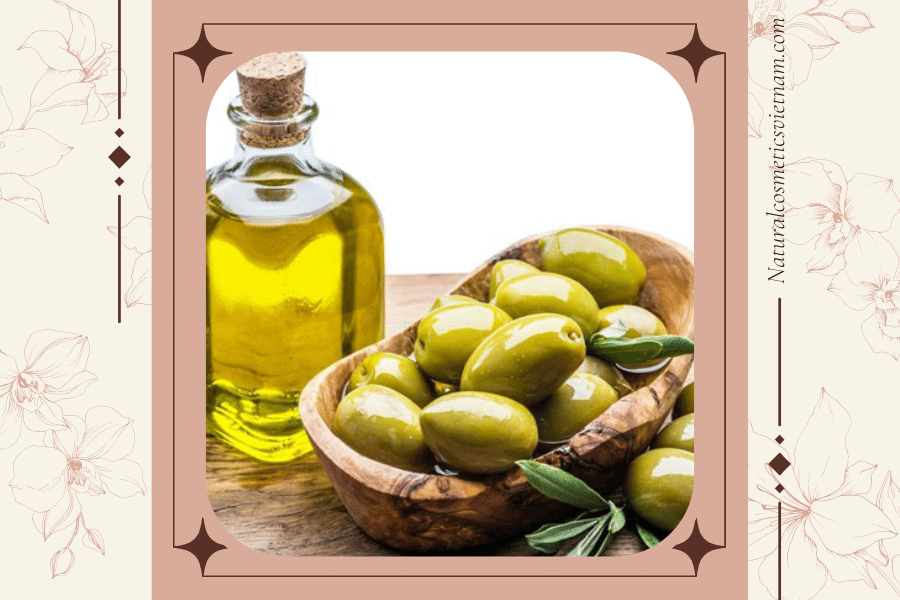
The trend towards using vegetable oils in natural cosmetics is expected to continue in the future, driven by several factors.
Advancements in plant-based oils
Innovation in vegetable oils presents numerous opportunities for the cosmetics industry, as they offer a range of benefits that can greatly impact the value chain and communities. The industry welcomes innovations in the sourcing and availability of vegetable oils, especially those that are new to the market.
One of the key advantages of vegetable oils is that they are not required to be registered under REACH regulations, making them a more attractive option for cosmetic brands. This has led to an increased demand for new and unique vegetable oils that can offer a range of benefits for skin health and overall well-being. However, the challenge lies in the sourcing of these vegetable oils, as many of them are only found in specific regions and their quantities are often low and unreliable. This is particularly true for oils like cacay oil, Kalahari melon seed oil, prickly pear oil, sacha inchi oil, and hog plum (ximenia americana) oil, which have great cosmetic properties and offer benefits for the local community, but are often difficult to obtain in significant quantities.
On the other hand, some vegetable oils like argan oil, baobab oil, and marula oil have more sustainable supplies, but wild harvesting enough nuts and seeds to meet the demand is a challenge. This is where innovation in the supply chain becomes crucial. Suppliers need to find new ways to increase the availability of these oils without compromising the environment or the communities that depend on them. Cosmetic brands are always on the lookout for new and unique vegetable oils that can provide added benefits to their products. However, availability is a key challenge for suppliers due to wild harvesting. Scarcity can be a problem, especially if an international buyer expects a certain amount of oil annually. Therefore, suppliers need to explore ways to increase the availability of these oils through sustainable and ethical sourcing methods.
In conclusion, innovation in vegetable oils has the potential to benefit not only the cosmetics industry but also the communities that depend on them. While challenges remain in terms of availability and sourcing, suppliers and cosmetic brands alike are working towards finding sustainable solutions that can provide the benefits of vegetable oils to a wider market.

The industry welcomes innovations in the sourcing and availability of vegetable oils
Case studies of successful natural cosmetics brands using vegetable oils
There are many natural cosmetics brands that have successfully incorporated vegetable oils into their products. Below are a few examples:
- The Ordinary: This brand has gained a lot of popularity in recent years for its affordable, science-backed skincare products. Many of their products contain vegetable oils such as rosehip oil, marula oil, and squalane, which are known for their moisturizing and anti-aging properties. The Ordinary’s unique selling point is their use of high-quality ingredients at an affordable price point.
- Herbivore Botanicals: This brand has built a reputation for using natural, plant-based ingredients in their skincare products. Many of their products contain vegetable oils such as jojoba oil, argan oil, and blue tansy oil, which are known for their anti-inflammatory and soothing properties. Herbivore Botanicals’ unique selling point is their commitment to using ethically sourced, sustainable ingredients.
- Tata Harper: This luxury skincare brand has become known for its high-end, all-natural products. Many of their products contain vegetable oils such as avocado oil, rosehip oil, and argan oil, which are known for their nourishing and anti-aging properties. Tata Harper’s unique selling point is their focus on using organic, farm-to-face ingredients in their products.
- Biossance: This brand has gained a lot of attention for its use of squalane, a vegetable-derived oil that is known for its moisturizing and anti-aging properties. Biossance’s unique selling point is their use of squalane sourced from sugarcane, which is a sustainable alternative to traditional squalane derived from shark liver.
- For our brand, Mela is a natural cosmetics brand that has successfully incorporated vegetable oils into their products. The brand name “Mela” originates from the phrase “Mẹ làm” which means “made by mother” in Vietnamese. This name represents the sacred bond between a mother and her child and the brand’s commitment to using natural ingredients that are safe for both mother and child. Mela’s products are formulated with high-quality vegetable oils such as argan oil, jojoba oil, and avocado oil. These oils are known for their moisturizing, nourishing, and anti-aging properties, making them ideal ingredients for natural cosmetics. Mela’s team of experts carefully selects each ingredient to ensure that it meets the brand’s strict standards for quality and safety. One of Mela’s unique selling points is their focus on the use of natural and organic ingredients in their products. The brand’s commitment to sustainability and environmental responsibility has also helped to differentiate it from other natural cosmetics brands in the market. Mela’s products have received rave reviews from customers who appreciate the brand’s dedication to using only the best natural ingredients. Many customers have reported noticeable improvements in their skin’s texture and appearance after using Mela’s products regularly. Mela is a great example of a natural cosmetics brand that has successfully leveraged the benefits of vegetable oils to create effective and safe products for consumers. With its focus on quality, sustainability, and customer satisfaction, Mela is well-positioned to continue growing its market share in the competitive natural cosmetics industry.

Case studies of successful natural cosmetics brands using vegetable oils
Challenges and opportunities for the use of vegetable oils in natural cosmetics
Challenges associated with using vegetable oils in natural cosmetics
The use of vegetable oils in natural cosmetics presents both opportunities and challenges for manufacturers. While these oils offer numerous benefits for the skin and are in high demand among consumers, there are also several challenges that must be addressed in order to ensure the quality and safety of the finished product.
One of the main challenges associated with using vegetable oils in natural cosmetics is their potential to go rancid over time. This can lead to a reduction in the oil’s effectiveness and an unpleasant odor in the product. To prevent this, manufacturers must take care to store the oils properly and use them in the correct amounts in their formulations.
Another challenge is the need for careful formulation. Vegetable oils can vary widely in their composition, and not all oils are suitable for use in all types of natural cosmetics. Manufacturers must carefully choose the right oils for their products and ensure that they are used in appropriate amounts to achieve the desired effects.
Despite these challenges, there are also many opportunities for manufacturers who use vegetable oils in their natural cosmetics products. For example, the increasing demand for natural and organic products has created a growing market for these types of cosmetics, and vegetable oils can help manufacturers differentiate their products from those of their competitors. Additionally, the unique properties of different vegetable oils offer a wide range of options for manufacturers to create customized products that meet the specific needs of their customers.

Challenges associated with using vegetable oils in natural cosmetics
Challenges in vegetable oils supply
One of the challenges in the use of vegetable oils in natural cosmetics is the availability of reliable supplies. Some vegetable oils, such as cacay oil, kalahari melon seed oil, prickly pear oil, sacha inchi oil, and hog plum (ximenia americana) oil have excellent cosmetic properties and offer benefits to local communities. However, the quantities of these oils are low and unreliable, making it difficult for them to be used in mainstream products. In the case of argan oil, baobab oil, and marula oil, there are now more sustainable supplies available. However, wild harvesting enough nuts and seeds is still a challenge. This can be due to factors such as weather conditions, crop failures, and limited harvesting techniques.
Despite these challenges, there are still several wild-harvested vegetable oils that are available in large quantities, such as shea butter and Brazil nut oil. These oils have been utilized in natural cosmetics for many years and are known for their excellent moisturizing and nourishing properties.
To address the challenge of unreliable oil supplies, there have been efforts to develop new extraction methods for vegetable oils. Additionally, the expansion of the market for natural cosmetics in emerging economies presents a significant opportunity for the use of vegetable oils. This can lead to increased demand and investment in sustainable sourcing and production methods, resulting in a more reliable and diverse supply of vegetable oils for natural cosmetics.
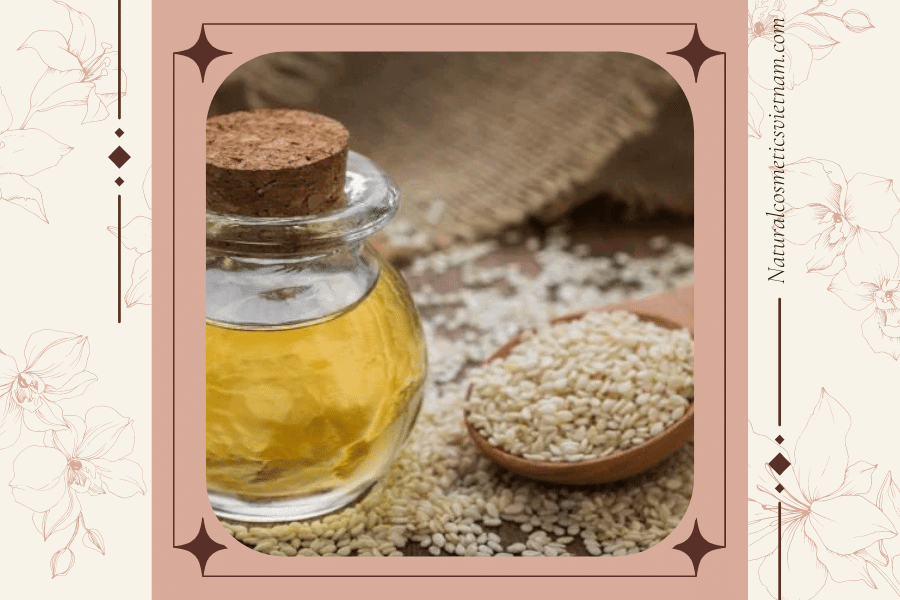
Challenges in vegetable oils supply
Some of the opportunities for further growth in the use of vegetable oils in natural cosmetics
The use of vegetable oils in natural cosmetics presents many opportunities for further growth and innovation. One of the most exciting prospects is the development of new extraction methods that will allow for a wider range of oils to be used in cosmetics. These methods may include advanced techniques like supercritical CO2 extraction or enzymatic extraction, which can yield oils that are purer and more potent than traditional methods. Another opportunity for growth is the expansion of the market for natural cosmetics in emerging economies. As more consumers become aware of the benefits of natural ingredients, demand for these products is likely to increase in regions like Asia, Africa, and South America. This represents a huge potential market for companies that can offer high-quality natural cosmetics made with locally-sourced vegetable oils. The trend towards sustainability and eco-friendliness is also creating opportunities for the use of vegetable oils in natural cosmetics. Many consumers are looking for products that are not only good for their skin, but also good for the planet. By using sustainably-sourced vegetable oils and minimizing packaging waste, companies can appeal to this growing segment of the market and differentiate themselves from competitors.
The use of vegetable oils in natural cosmetics is a dynamic and constantly evolving field, with many opportunities for growth and innovation. As consumers continue to prioritize natural and sustainable products, companies that can adapt and innovate in this space are likely to thrive.

Some of the opportunities for further growth in the use of vegetable oils in natural cosmetics
Additional information
REACH
REACH is a European Union regulation concerning the Registration, Evaluation, Authorization, and Restriction of Chemicals. It aims to ensure that the risks associated with chemicals are identified and managed, and that the chemicals are safely used. For companies operating within the EU, it is mandatory to comply with REACH regulations.
In the cosmetics industry, REACH registration is required for many of the chemicals used in products, including synthetic ingredients. However, vegetable oils are exempt from REACH registration requirements. This exemption is due to the fact that vegetable oils are natural substances and are not chemically synthesized. As a result, this exemption makes it easier for cosmetic manufacturers to use vegetable oils in their products, as they do not have to go through the REACH registration process. This exemption is just one of the many benefits of using vegetable oils in natural cosmetics. Vegetable oils offer many advantages, including their moisturizing, anti-inflammatory, and anti-aging properties. Additionally, vegetable oils can be sourced sustainably, and their production can provide income and employment opportunities for local communities.
Innovations in the sourcing and production of vegetable oils are creating further opportunities for growth in the use of vegetable oils in natural cosmetics. For example, new extraction methods are being developed that increase the yield and quality of vegetable oils, while reducing the environmental impact of production. Additionally, the expansion of the market for natural cosmetics in emerging economies is creating new opportunities for the use of vegetable oils in these markets. However, there are also challenges associated with the use of vegetable oils in natural cosmetics, such as the potential for oils to go rancid and the need for careful formulation. Additionally, finding reliable supplies of new oils for mainstream products can be difficult. While some oils, such as shea butter and Brazil nut oil, are available in large quantities, others, like cacay oil and hog plum oil, have low and unreliable quantities.
Despite these challenges, the benefits of using vegetable oils in natural cosmetics are clear. As the demand for natural cosmetics continues to grow, the use of vegetable oils is likely to play an increasingly important role in the industry.
Vegetable oils are becoming increasingly popular in the natural cosmetics industry due to their numerous benefits for both the skin and the environment. However, there are still challenges that need to be addressed, such as ensuring a sustainable and reliable supply chain for these oils. Despite these challenges, the potential for further growth in the use of vegetable oils in natural cosmetics is high, with emerging economies presenting new opportunities for expansion. Consumers are encouraged to explore natural cosmetics brands that use vegetable oils and consider incorporating these ingredients into their skincare routines for a more sustainable and effective approach to skincare. By embracing this trend, we can support a more environmentally friendly and socially responsible cosmetics industry.
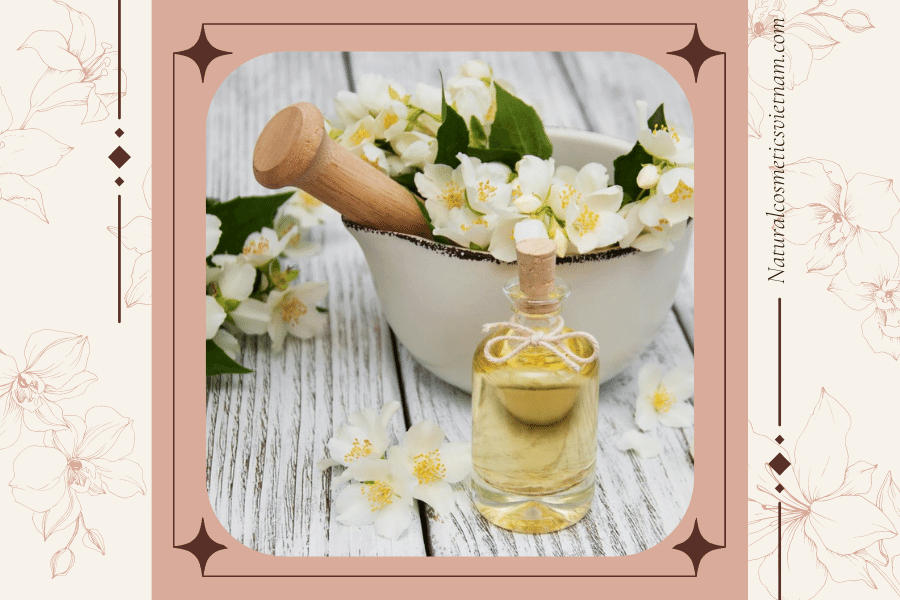
Nature’s Secret: The Surprising Benefits of Vegetable Oils in Natural Cosmetics
Unsaturated fatty acids
Unsaturated fatty acids are a type of fat that are commonly found in vegetable oils, such as olive oil, avocado oil, and sweet almond oil. Unlike saturated fatty acids, which are solid at room temperature, unsaturated fatty acids are typically liquid. This is because they have at least one double bond in their molecular structure, which causes them to bend and not pack together tightly like saturated fatty acids. There are two types of unsaturated fatty acids: monounsaturated and polyunsaturated. Monounsaturated fatty acids have only one double bond, while polyunsaturated fatty acids have two or more double bonds. Both types are important for human health and can be beneficial for the skin when used in natural cosmetics.
Some of the unique properties of unsaturated fatty acids include their ability to penetrate the skin and provide moisture, as well as their anti-inflammatory and antioxidant properties. Polyunsaturated fatty acids, such as those found in flaxseed oil and chia seed oil, are particularly effective at reducing inflammation and protecting the skin from environmental stressors.
In natural cosmetics, unsaturated fatty acids are often used as emollients and moisturizers, helping to soothe and nourish the skin. They can also be used in formulations to improve the texture and stability of the product. However, it is important to note that unsaturated fatty acids can be sensitive to oxidation and may go rancid over time, which can reduce their effectiveness. Proper storage and careful formulation are important to ensure the stability and effectiveness of products containing unsaturated fatty acids.
Lipophilic
Lipophilic is a term used to describe substances that have an affinity for fats and oils. It comes from the Greek words “lipos,” meaning fat, and “philia,” meaning love. Lipophilic substances are typically nonpolar and insoluble in water, but they dissolve readily in organic solvents and lipids. In the context of cosmetics, many natural oils are lipophilic, which means that they can penetrate and nourish the skin’s lipid barrier. This property makes them ideal for use in skincare products, where they can provide moisture, nutrients, and other benefits to the skin. However, lipophilic substances can also pose some challenges, such as the risk of clogging pores or causing breakouts in individuals with oily or acne-prone skin. Overall, understanding the lipophilic properties of substances is essential for formulating effective and safe cosmetics.
Saponification
Saponification is a chemical reaction in which an ester, such as a vegetable oil or animal fat, reacts with an alkali, such as sodium hydroxide or potassium hydroxide, to produce soap and glycerin. During saponification, the ester bond in the oil or fat is hydrolyzed, or broken down by water, and the fatty acids are released. These fatty acids then react with the alkali to form soap molecules, while the glycerin is separated out as a by-product.
Saponification is commonly used in the soap-making industry, as well as in the production of other personal care products, such as shampoo and body wash. The type and quality of the oil or fat used in saponification can have a significant impact on the final product’s properties, such as its lather, cleansing ability, and moisturizing properties.










Leave a reply